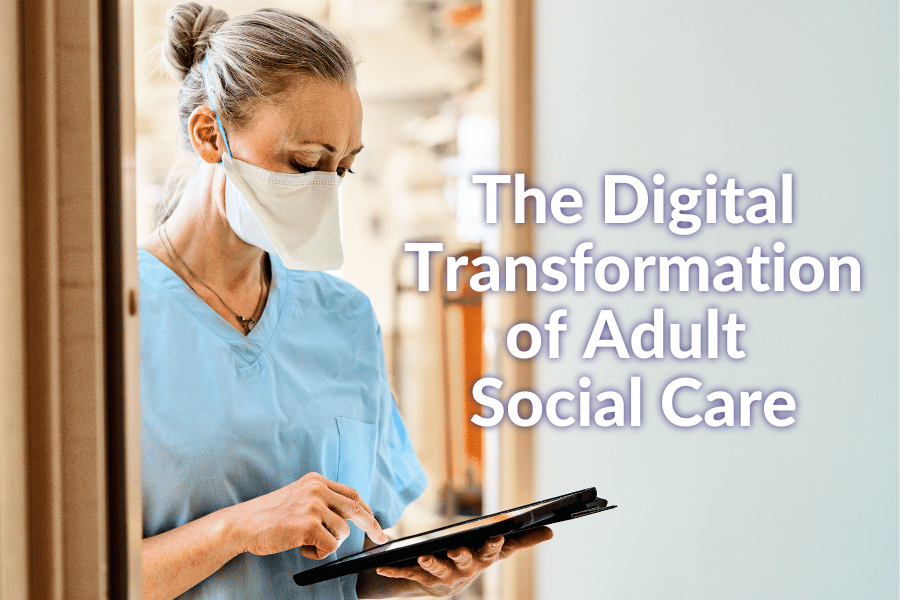The UK government have new plans to invest £150 million in the digital transformation of adult social care (gov.uk). This is a collaboration between the Department of Health and Social Care (DHSC) and NHS England. This plan aims to make significant improvements by 2025 by implementing new digital strategies. The goals of this initiative are to:
- Prevent care needs from escalating
- Personalise care and reduce disparities
- Improve the experience and impact of care workers
- Transform performance
The use of iPads in care homes during the Covid-19 pandemic inspired these digital developments. These iPads allowed staff to communicate via video calls and allowed residents to keep in touch with friends and family. This was hugely impactful and the iPads are still used today. The technology has been helpful in the delivery of care too, with staff using iPads for care planning and ordering medication. Over 50% of CQC registered providers now use electronic care plans. Find out more in this gov.uk article.
In the coming years, the government will implement its digital health and social care plans in England. The needs of local areas will be taken into consideration when delivering funding and support. The benefits of technologies including tablets and smart speakers are currently under consideration.
New fall detection and prevention systems may be used to help older adults live at home for longer (National Library of Medicine). These take various forms, including watches and bed sensors. When they detect a fall, they immediately notify caregivers. Some may even prevent falls by detecting movement and playing a voice message warning the listener to move carefully.
Care workers have a wide range of digital capabilities. They are likely to have mixed feelings about the implementation of new technologies. To address this, the government has produced a new digital skills framework. This covers seven key themes for effective digital working:
- Using digital technology in a person-centred way
- Technical skills for using digital technology
- Communicating through technology
- Being safe and secure online
- Ethical use of data and digital technology
- Using and managing data to deliver care
- Digital learning, self-development and wellbeing
The framework is currently available as a draft. This provides an opportunity to give feedback and see further development. The final version will be available online soon.
Stay up to date with developments in the health and social care sector. Advantage Accreditation sends out regular email newsletters to help you keep up with the latest news. Sign up for our mailing list below.


